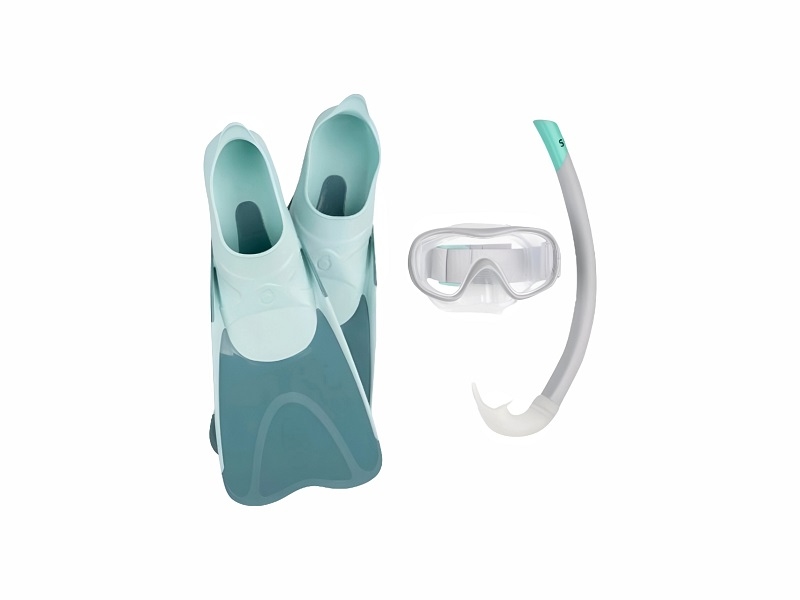
Proper diving gear maintenance is essential for ensuring the positive safety, toughness, and final performance of your gadget. Neglecting recurring care can lead to malfunctions, pain, or maybe risky situations underwater. To hold your device in pinnacle form, it's crucial to rinse it after diving to do away with salt, sand, and different debris that might purpose corrosion or put on. Scuba gear garage additionally plays a critical position in maintaining your equipment—maintaining it in a groovy, dry area prevents mold, UV harm, and material degradation.
Key protection tasks like wetsuit cleaning assist extend the suit’s lifestyles with the aid of disposing of micro organism and odors, at the same time as masks defogging guarantees clear visibility on each dive. Regular inspections, cleaning, and proper garage techniques now not only best protect your funding but also contribute to a safer and greater exciting diving revel in. This guide will stroll you through the important steps to preserving your diving gear so it remains dependable for years to come.
Adequate rinsing after diving is critical to preserving your gear and making it final. Saltwater can also corrode, even as sand and particles can also put on out critical parts inclusive of regulators, zippers, and buckles. Rinse your tool thoroughly after every dive with the use of sparkling water that specializes in shifting elements and seals. Soaking your scuba gear in lukewarm water allows the dissolving of salt deposits, stopping buildup and harm. Dry your gear absolutely before scuba tools garage to keep away from mold and deterioration. An easy submit-dive rinse could make a huge distinction in preserving your tools dependable for destiny dives.
One of the maximum crucial steps in diving gear maintenance is an intensive rinse after diving. Saltwater, sand, and chlorine can become worse your gadget quickly if no longer well washed off.
Failing to rinse after diving can lead to corrosion, buildup, and reduced equipment performance.
Correct scuba diving gear maintenance or storage is as important as cleaning. Poor storage can lead to mildew bloom, cracks, and material degradation.
Storing Your Gear Correctly
Good scuba tools and garage behavior increase the existence of your device and enhance your diving enjoyment.
A properly maintained wetsuit gives better insulation and sturdiness. Ignoring wetsuit cleaning may lead to unpleasant odors, bacterial growth, and fabric degradation.
Step-by-Step Wetsuit Cleaning Guide
Consistent wetsuit cleaning prevents wear and tear, making your healthy remaining longer and experience more cushty.
A foggy masks can destroy your dive. Proper mask defogging ensures a clean subject of vision and a safer underwater revel in.
Best Methods for Mask Defogging
Practicing the effective strategies of mask defogging will ensure an advanced dive with unobstructed vision.
Your regulator is the most vital a part of diving equipment. Regular preservation guarantees it capabilities nicely and delivers air efficaciously.
Regulator Maintenance Tips
A nicely maintained regulator is vital for secure and clean breathing underwater.

Small objects like fins, snorkels, and dive boots also require a hobby in gear protection.
Cleaning and Storing Your Accessories
These smooth steps make certain your accessories continue to be durable and snug for every dive.
Your dive computer and gauges provide important information on the equal time as underwater. Maintaining them in a high situation ensures right readings.
Dive Computer Maintenance
Regular safety maintenance makes your dive laptop dependable and avoids unexpected malfunctions.
Moisture trapped in your dive bag can cause mold boom and unsightly odors. Proper storage prevents these issues.
How to Keep Your Dive Bag Fresh
Keeping your dive bag dry and clean facilitates preserving all your diving equipment in exceptional situations.
Even with ideal diving equipment upkeep, device doesn’t closing forever. Knowing whilst to replace items is vital for protection.
Signs It’s Time to Replace Gear
Routine exams aid in turning into aware about while changing them is wanted, taking into account secure dives every time.
Maintenance of your scuba device is as crucial as learning the way to use it. Ongoing diving equipment protection guarantees your equipment remains beneficial, safe, and cushty. Simple conduct such as nicely rinsing after a dive, drying your gadget well, and adhering to right scuba gear garage processes can help make bigger the lifestyles of your tools substantially. Wetsuit cleansing prevents odors and cloth breakdown, at the same time as habitual mask defogging continues your imaginative and prescient clear on every dive. Neglecting maintenance can lead to high-priced upkeep or surprising screw ups whilst you want your equipment the maximum.
By incorporating those protection practices into your submit-dive recurring, you not simplest beautify your diving enjoyment but also promote protection and reliability. Whether you’re a beginner or an experienced diver, treating your device with care guarantees it is going to be equipped each time a journey calls. Dive clever, keep your tools, and experience a fear-unfastened underwater experience.
This content was created by AI